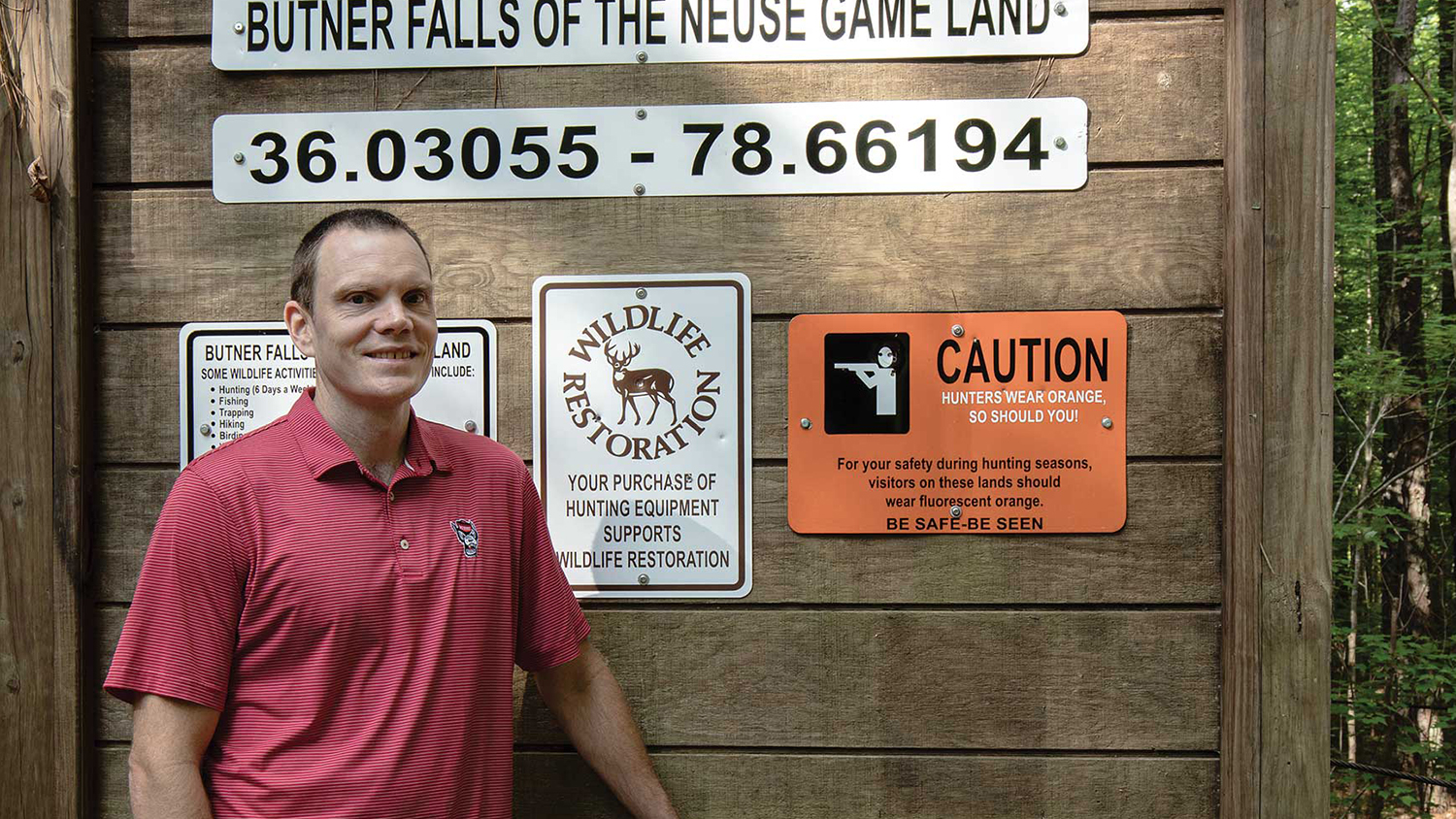60 Seconds With Lincoln Larson
Meet Lincoln Larson, an associate professor in the department of parks, recreation and tourism management, who found new variables to identify the next generation of hunters.

Since the 1980s, the number of hunters in the United States has declined by about 30 percent. Lincoln Larson has researched ways to reverse the trend and was part of a team that surveyed college students in 22 states to identify potential new hunters.
Why should people care if there’s a decline in hunting?
One, hunting has been a critical piece of American culture for hundreds of years . . . the American mindset of the frontier spirit, individual freedom and liberty. There is the ecological management piece. And then the last one . . . is the conservation connection. From Teddy Roosevelt to Aldo Leopold, a lot of these famous conservationists were hunters and hunting was front and center when they were talking about management and habitat protection.
What’s the financial connection between hunting and conservation?
Hunting has been the backbone of conservation in the United States. And in the ’30s, ’40s, and ’50s, it became, financially, the backbone of conservation . . . creating permits and excise taxes on hunting equipment, which goes to the states for wildlife habitat protection.
In your survey of college students, you have some interesting findings about potential new hunters.
They were much more likely to be nonwhite, much more likely to be women. They were likely to be from urban areas. So you have an incredibly diverse population of young adults with an interest in hunting, but no way to activate it because they’re not connected to hunting in any way.
So how do you turn them into hunters?
A program called Academics Afield is designed to introduce students to hunting by focusing on shooting skills. They’re also focusing on the food connection. They want to eat local free-range meat, and hunting provides a unique way to do that. They want to contribute directly to conservation. And the social connection. Without knowing friends and family members who can take you and talk about it, you won’t keep doing it. We try to connect students with students on campus who already hunt.
Are you a hunter?
No, I’ve never hunted in my life. When I present at conferences, I say, “Hey, my name is Lincoln, and I’m not a hunter. But wait, there’s a reason you should listen to me. People like me will ultimately influence the future of hunting.”
- Categories:


